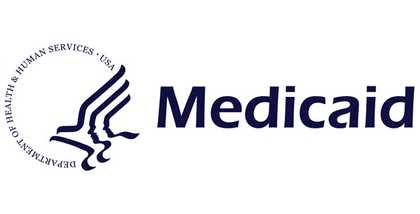As the world becomes increasingly health-conscious, diet trends are rapidly evolving, affecting not only general wellness but also oral health.









$149 New Patient Special!*
Includes comprehensive exam, full mouth x-rays and a cleaning for new patients without insurance.
As the world becomes increasingly health-conscious, diet trends are rapidly evolving, affecting not only general wellness but also oral health. Our dietary choices play a pivotal role in the condition of our teeth and gums, underscoring the importance of understanding the impact of diet trends on oral health. With diets like keto, paleo, and plant-based gaining popularity, it’s vital to examine their effects on oral health and diet. Nutritional deficiencies and hydration levels from these diets can profoundly impact dental hygiene. Understanding how diet and oral health are interconnected empowers individuals to make informed decisions for a brighter, healthier smile.
Understanding the Link Between Diet and Oral Health
The correlation between nutrition and oral health is complex and impactful. Our dietary habits directly affect oral hygiene and overall dental wellness. A nutrient-rich diet not only supports physical health but also strengthens teeth and gums. For instance, vitamins such as Vitamin C and calcium are essential for robust teeth and healthy gums. Conversely, diets high in sugar and acidic foods encourage harmful bacteria growth, leading to tooth decay and gum disease. The impact of diet trends on oral health is evident in the balance between nutrient intake and oral health and diet.
Poor nutrition increases the risk of dental issues due to the proliferation of cavity-causing bacteria from high sugar consumption, which erodes enamel and causes cavities. Acidic foods and drinks further contribute to enamel wear, making teeth susceptible to decay. A well-balanced diet combats these issues, with antioxidant-rich foods like fruits and vegetables reducing inflammation and infection, thus promoting oral health and diet.
Balanced nutrition is fundamental for oral hygiene. A diet incorporating whole grains, lean proteins, healthy fats, and abundant fruits and vegetables provides essential vitamins and minerals for oral health. Hydration is crucial, as water removes food particles and bacteria, protecting teeth and gums. By embracing balanced nutrition, you enhance both overall health and oral resilience against potential dental problems. Emphasizing the influence of diet and oral health is essential for informed dietary choices.
Popular Diet Trends and Their Effects on Oral Health
Diet trends significantly affect oral health, with many popular choices offering both benefits and risks. Juice cleanses, for example, are favored for their detoxifying effects, yet their high acidity from fruits can erode enamel, heightening sensitivity and cavity risk. It’s crucial to maintain oral hygiene during juice cleanses, like rinsing with water post-consumption and waiting before brushing to protect enamel.
The raw food diet, promoting uncooked foods like fruits, vegetables, nuts, and seeds, poses oral health risks despite its nutritional value. High fiber content can wear teeth due to chewing harder foods, and acidic foods like citrus can damage enamel. Moreover, the absence of nutrients like calcium and vitamin D, typically found in cooked foods and dairy, can compromise dental health.
Intermittent fasting and smaller meal patterns, popular for weight management, have mixed effects on dental health. Extended periods without food reduce saliva production, potentially leading to dry mouth. Saliva is crucial for neutralizing acids and removing food particles, thus reducing tooth decay and gum disease risk. Additionally, condensed meal times may result in quick, less nutritious snacks high in sugar and acidity, further jeopardizing dental health.
In summary, while these diet trends may offer health benefits, they also pose potential oral health risks. Balancing dietary choices with oral hygiene practices is essential to mitigate the impact of diet trends on oral health.
Nutritional Deficiencies and Oral Health Consequences
Optimal oral health extends beyond dental check-ups and hygiene; it’s profoundly influenced by nutrient intake. Essential nutrients for healthy teeth and gums include calcium, vitamin D, phosphorus, vitamin C, and B vitamins. Calcium and phosphorus are vital for strong enamel, while vitamin D aids calcium absorption. Vitamin C supports gum health by aiding collagen formation and boosting the immune system, reducing gum disease risk. B vitamins, especially B12 and folate, maintain healthy oral tissues.
Restrictive diets limiting these nutrients can lead to serious oral health issues. Nutritional deficiencies weaken enamel, increasing decay and sensitivity risk. Insufficient vitamin C can result in gum disease, leading to swollen, bleeding gums and potential tooth loss. Lack of B vitamins can cause painful mouth ulcers and glossitis, characterized by a swollen, inflamed tongue. The impact of diet trends on oral health is visible in these deficiencies, which severely compromise oral health and overall wellness.
Incorporating diverse dietary sources ensures essential vitamin and mineral intake. Dairy products like milk, cheese, and yogurt provide calcium and vitamin D. Leafy greens, nuts, and seeds offer calcium, while fish and eggs are excellent for vitamin D. Phosphorus-rich foods include meat, poultry, fish, and legumes. Vitamin C is abundant in fruits and vegetables, especially citrus fruits, strawberries, bell peppers, and broccoli. For B vitamins, include whole grains, eggs, and dairy in your diet. A balanced diet rich in these nutrients significantly enhances oral health and prevents adverse effects from nutritional deficiencies, highlighting the connection between oral health and diet.
Preventive Measures to Protect Your Oral Health Amid Diet Trends
As diet trends evolve, adopting preventive measures to safeguard oral health is crucial. Fad diets can alter nutrient intake, posing risks to teeth and gums. Balancing meals with food groups that promote oral health—like fruits, vegetables, whole grains, and lean proteins—can mitigate these effects. Avoid excessive acidic or sugary foods that erode enamel and cause cavities, opting for healthier alternatives that satisfy cravings without compromising dental wellness.
Regular dental check-ups are vital, especially during dietary changes. Dental professionals monitor the effects of new eating habits on oral health and diet, offering tailored advice. For high-carbohydrate or sugar diets, more frequent cleanings may be recommended to prevent plaque buildup. Regular visits allow early detection of dental issues, ensuring timely intervention and care.
Maintaining oral hygiene is critical when navigating changing diets. Regardless of dietary choice, adhere to a consistent oral care routine: brush twice daily with fluoride toothpaste and floss to remove food particles and plaque. If your diet causes dry mouth—common in low-carb or high-protein diets—consider using alcohol-free mouthwash or saliva substitutes. Staying hydrated is essential, as water washes away food particles and neutralizes acids from bacteria. Prioritizing oral hygiene protects teeth and gums, regardless of diet trends.
The Role of Hydration in Oral Health
Water is a vital component for maintaining oral health, crucial for saliva production, the mouth’s natural defense system. Saliva aids food digestion and protects against acid-producing bacteria that cause tooth decay and gum disease. Adults should aim to drink at least eight 8-ounce glasses of water daily to maintain hydration.
Dehydration significantly impacts dental health by reducing saliva production, leading to dry mouth or xerostomia. This condition fosters harmful bacteria growth, increasing cavity and gum disease risk. Dry mouth can also affect swallowing and taste, impacting nutritional intake, especially concerning for diets limiting food choices and hydration levels. Understanding hydration’s importance is essential for maintaining oral health and diet.
To ensure adequate hydration for oral health, consider these tips: Carry a reusable water bottle to encourage regular drinking, set reminders for hydration breaks, include water-rich foods like cucumbers, oranges, and watermelon, and limit sugary and caffeinated beverages that contribute to dehydration. By prioritizing hydration, you support overall wellness and foster a healthier environment for teeth and gums, making water an ally in achieving excellent oral health.
When to Consult Your Dentist
Diet changes can significantly impact oral health, and recognizing signs indicating a need to consult your dentist is crucial. Symptoms like persistent bad breath, increased tooth sensitivity, or unusual gum or teeth changes following new diets may signal oral health issues linked to dietary adjustments. High-sugar or acidic diets can lead to enamel erosion, while nutrient deficiencies may weaken gums and increase cavity risk. Monitoring oral health and diet during dietary transitions prevents severe complications.
Professional advice is vital when adopting new diets for weight loss, health, or lifestyle changes. Dentists offer personalized recommendations aligning with dietary choices while addressing oral health needs. They guide you in maintaining a balanced diet supporting overall and oral health, crucial for restrictive diets omitting essential vitamins and minerals. Consultations ensure healthy choices for your mouth and emphasize the impact of diet trends on oral health.
Consider seeking professional guidance to support your oral health needs during dietary changes. Comprehensive examinations and care plans considering dietary habits and health goals provide tips for maintaining oral hygiene with specific diets, ensuring confidence in oral health care while exploring dietary options. Your smile deserves the best care!









